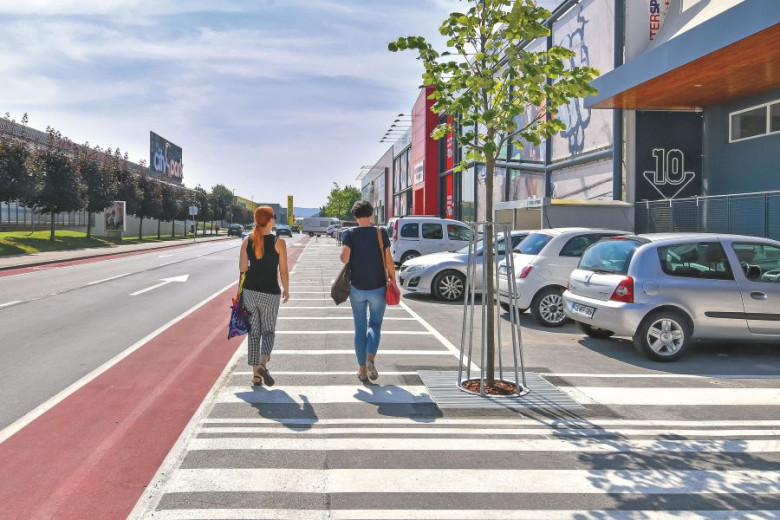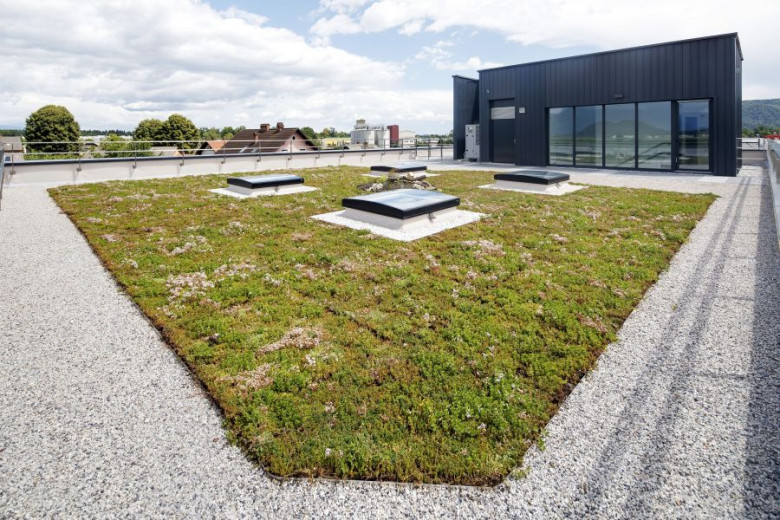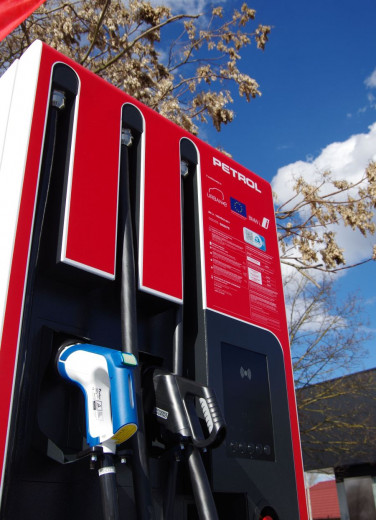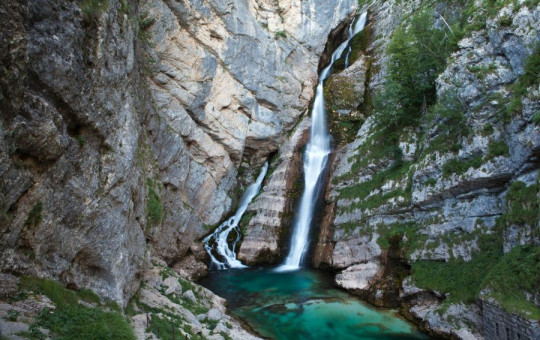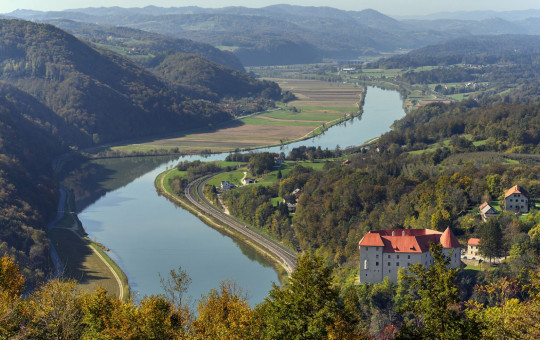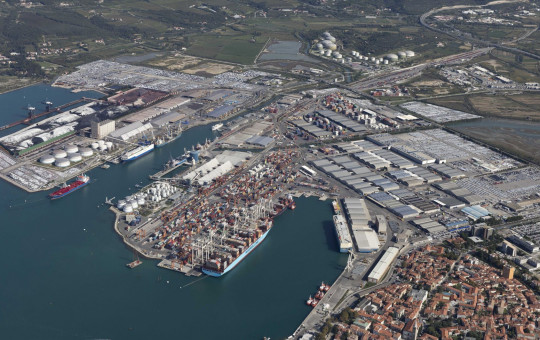Society and the economy are facing the greatest challenges of the 21st century – those of climate and energy. This year's World Economic Forum in Davos has put climate change high on the list of the main risks to the world economy.
A shift towards the green economy, which has a smaller impact on the environment, is no longer just the fantasy of environmentalists, but a necessary fact. In ensuring competitiveness and complying with environmental policies, companies are required to reduce costs and work towards sustainable development; on the other hand, this provides them with new, innovative business opportunities.
Many countries, companies and investors have already identified the measurable financial and environmental benefits that a green economy can offer, along with business advantages and improvements to their knowledge, experience and reputation. Slovenia is one of those countries.
Legislative requirements, obligations to constantly improve environmental and energy management, and the directive on the disclosure of non-financial information, which is mandatory for companies with more than 500 employees, compel companies in all sectors (construction, mobility, energy, agriculture, tourism, finance, insurance business, etc.) to move towards greener, more circular and more sustainable operations. This applies to what companies do and the services and products they provide. The Eco Fund and SID Bank also promote the energy efficiency of Slovenian companies with financial mechanisms.
The Centre of Energy Efficient Solutions (CER), a network promoting the innovative green economy, strives for the development of an intensive green economy that has the answers to climate change. Members of CER are advanced companies from the energy, construction and mobility sectors: BMW, BTC, ELES, Etrel, Jelovica, JUB, Gartner Arhitekti, Knauf Insulation, Lapp, Lotrič Meroslovje, Lumar, OMV, Petrol, Plan-Net Solar, Proinco, Porsche Slovenija, Renault, Resalta, Slovenijales, Smartis, SODO, Termo Shop, Tondach, Velux and Wienerberger.
For greater innovation and competitiveness
The broader concept of a green and low-carbon economy highlights the reduction of negative impacts on the environment and regulatory frameworks that promote such investments, encouraging companies to pursue them as priority development directions. Meanwhile the concept of transitioning to a circular economy defines the systemic shift towards promoting innovation and competitiveness on the basis of opportunities arising from changed global management conditions and the acknowledgement of the absolute scarcity of resources in the natural and social environment. In Slovenia, the circular economy has become one of the country’s strategic development priorities and is included in the key national documents, such as the Vision of Slovenia 2050 and the Slovenian Development Strategy 2030.
Companies that use the most advanced business practices in this field include the Slovenian plants of the international company Aquafil (formerly Yulon), which has developed a regeneration business model of nylon production from waste fishing nets, carpets and other waste material.
Slovenian companies that use advanced business models include also Knauf Insulation, Valtrex, the representative of the Italian paper giant Lucart Group in Slovenia, which has received an award from the World Economic Forum for its "material cycle", and energy companies, such as Gen-i, Petrol, Butan Plin and others.
For several years now, the Pulp and Paper Institute has been carrying out the innovative circular CEL.CYCLE program, in which they have included their members and the majority of the Slovenian paper industry. SID Bank has recently introduced the Circularity Assessment Model into its business practice, which enables it to evaluate and systematically monitor its clients’ business models and, according to their level of circularity and circular potential, define the range of suitable financial instruments and adapt interest rates and other lending conditions. Some of the good practices that should be highlighted are the systematic approach of the City of Maribor to the management of waste, water and the sewerage system, and the practices of several Slovenian public utility companies, including: Snaga, Komunala (Izola), Okolje (Piran), Saubermacher and others. The Petrol group has also identified the transition to the circular economy as an opportunity for new business models, greater resource efficiency and the creation of new green jobs.
Examples of good practice
BTC City: Green, they produce green energy from renewable resources
Green is one of BTC’s cornerstones, along with its business unit tasked with making sure that sustainable development becomes an integral part of business practice and decision-making. As part of this mission, among other things, BTC produced 1,677,655 kWh of green energy from renewable resources in 2018 and, with efficient energy use projects, compared to the base year 2010, saved 11,147,376 kWh of energy, reduced impacts on the environment by 5,781,922 kg of carbon dioxide, and planted 13 new trees and 400 shrubs.
Knauf Insulation: The Urbanscape green roof system
Knauf Insulation puts its commitment to an increasingly green economy into action with projects such as the Urbanscape green roof system. This is a Slovenian innovation – a non-combustible natural growing medium that is made of virgin rock mineral fibres without any additives. Green roofs have a favourable cooling effect – they reduce overheating, store runoff, cool the structure, clean the air, reduce carbon dioxide emissions and provide a natural habitat for various organisms.
Petrol: More than 100 locations with chargers for electric cars
The Petrol group has been actively increasing its energy independence and efficiency, along with the share of renewable energy sources in the markets where it operates. In the long term, it aims to create a green energy mix, including options for sustainable mobility. In Slovenia it has established a network of public e-chargers at more than 100 locations, which are used by more than 90% of all electric car drivers in Slovenia. Petrol’s sustainable focus is also present in towns – in terms of energy and the management of all natural resources.
Date: 1. November 2019
Time to read: 5 min

